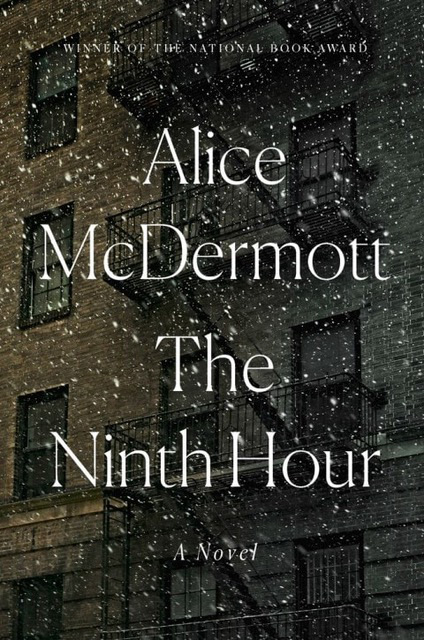“I am as human as I can possibly be.”
National Book Award winner Alice McDermott once admitted that she does not write about Catholics and Catholicism just because it’s her own religion. “I have used Catholicism simply to give my characters a vocabulary that they might not otherwise have,” she said after her Charming Billy took that prize. “My sense of all religions is that all we’re doing is giving language to our common experience of uncertainty, of yearning.”
McDermott is correct. All religions have their vocabularies, and Catholicism is rich with its language, ritual, textures, metaphors, and culture. In this octave of Easter, we could still be damp from the sprinkling of holy water and our Sunday’s clothes might even hold the scent of the incense and charcoal.
The Ninth Hour, McDermott’s most recent novel, seems to douse the reader with waves of Catholic images and provide fragrant aromas to illustrate the pain and pathos of two families, one who struggles and the other who sails to reach the next generation. “Love is a tonic, not a cure” is a line offered a few times in the book as Irish wisdom and a soothing balm to broken hearts and weary souls. The corporal works of mercy star in the novel, though they feel more like wallpaper in the rooms that hold the most important scenes. In truth, mercy is more willpower than wallpaper, administered first by Sr. St. Savior, the old nun whose name, refashioned as Sally, is given to the unborn child of the man who commits suicide in the opening pages. Mercy abounds in odd and curious ways from almost every character thereafter.
This book hails Catholicism’s depth and derides its empty piety. The nuns forego the trappings of the church they help create. Furthermore, these hardworking women advance an essential theology that both prizes and forgives humanity for its understandable sins of varying degrees of seriousness. McDermott’s comfort with and acceptance of humanity is the most Catholic dimension of her book.
During this Easter season when we rejoice in the supernatural event of the resurrection of Jesus, do we have the humility to champion the humanity that this divine act redeems? St. Francis de Sales is believed to have said, “I am as human as I can possibly be.” The savior he followed could have easily said the same words.
When we repeat this saying of DeSales over these 50 days of Easter, let us speak them with more rejoicing than apology.
If you like this article, please share it on Facebook.




